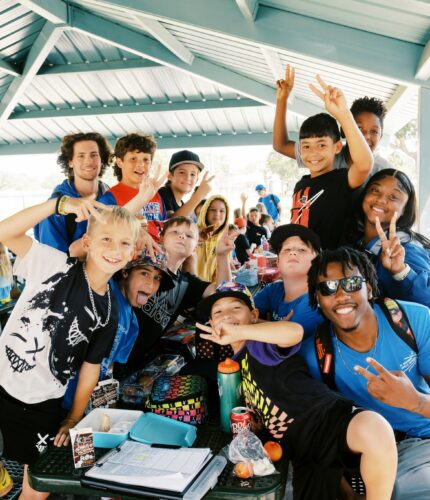
Rebecca Reid– Director of Education at Busch Wildlife Sanctuary, a multifaceted operation (wildlife refuge, veterinary hospital, rehabilitation facility, education center) in Jupiter Farms, Florida—discusses the readily observable love for her job, and its probable roots in her passion for animals, and being outdoors, while growing up in New Jersey.
Reid recalls it was a childhood joyously replete with catching salamanders, hanging with rabbits, and playing with the family dog. This would seem to foreshadow her work with animals at Busch Wildlife—and it eventually would, but there was an initial period when she was working in restaurants, not going to school—followed by a time, when she was attending college, dovetailing with her discovery of Busch Wildlife Sanctuary, where she began volunteering.
After a time, Reid moved into Busch’s Education department, and a while after that, the woman leading that department left the Sanctuary, opening the opportunity for Reid to become Director of Education. She’s held that position for more than eight years now.
Remarking that Busch Wildlife offers a sprawling array of education programs, presented not only at the Sanctuary, but offsite, too, I note that they clearly place a premium on education.
Reid quickly concurs, explaining that it’s a central facet of their mission, in that 90% of their rehabilitation cases currently involve human interaction with those animals—the hope is that their educational efforts will decrease those human-animal interactions (well-meaning as they may be) reducing the number of the Sanctuary’s rehab cases.
Reid assesses the ways in which the education programs have evolved, expounding on how she has devised a significant revision to the format of school field-trip visits—making good use of the additional, larger facilities that exist at the new, almost 20-acre spread they relocated to this year from the previous, six-acre campus.
Her aspiration for the revised format, slated to be implemented in October, will be a much more interactive program for the students, cultivating, Reid hopes, “little scientists.” This reinvented approach is no small matter, in that it involves a towering number of young students—Reid leads a team of educators who greeted upwards of 12,000 schoolchildren to the Sanctuary last year.
Reid explains another facet of their education programming that’s enormously important: instructing disadvantaged students—more than 2500 annually—who, in some cases, find it impractical to travel from their schools, so Reid and her colleagues commute to some of those campuses, to give their Busch Wildlife talks.
Putting her on the spot a bit, I ask Reid about being named a finalist in Palm Beach Illustrated’s annual “Educator of the Year” award—you can vote for her, through July 30, here:
https://www.palmbeachillustrated.com/education-awards-voting/
Listen here:
Leave a Reply










